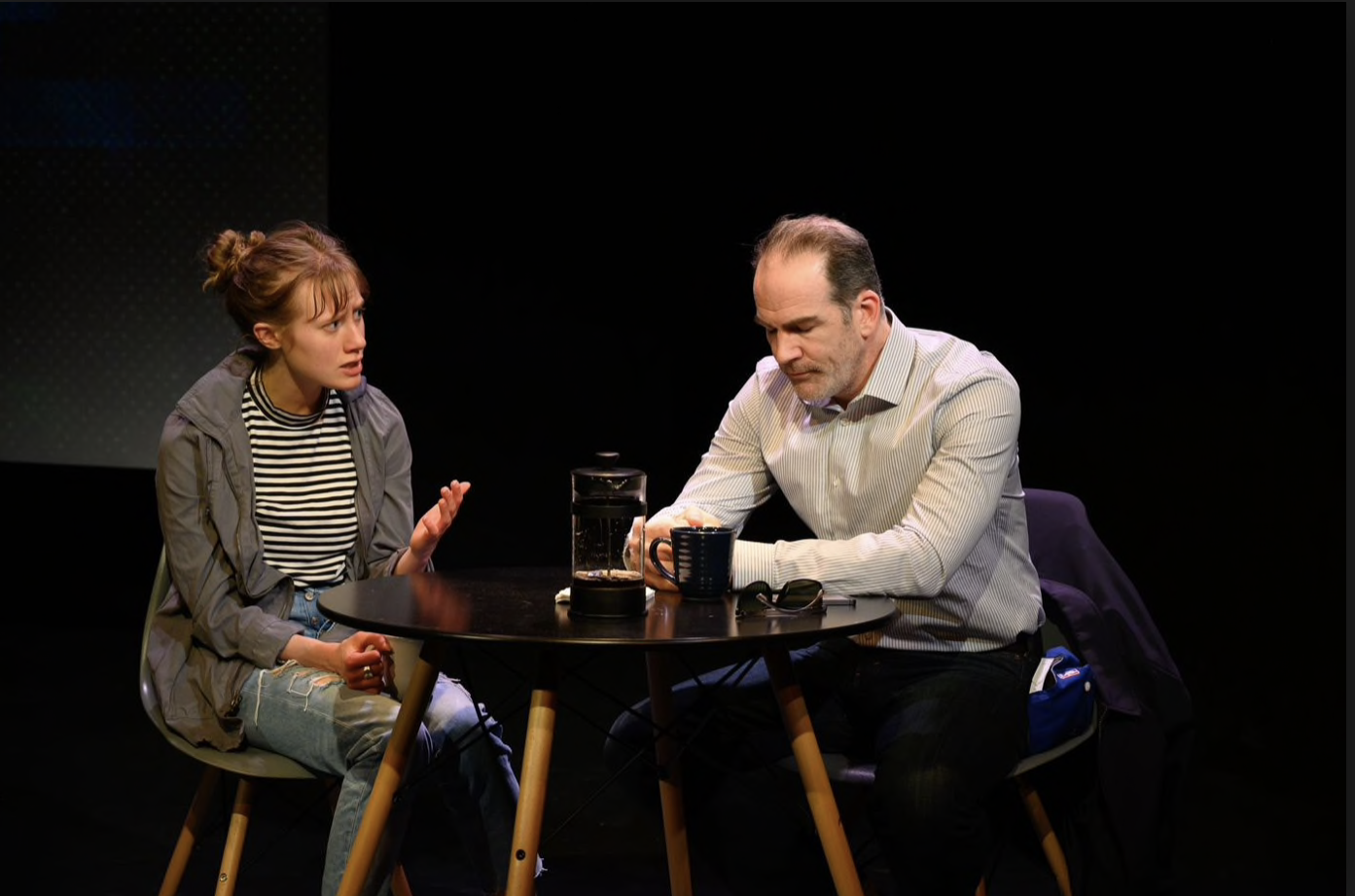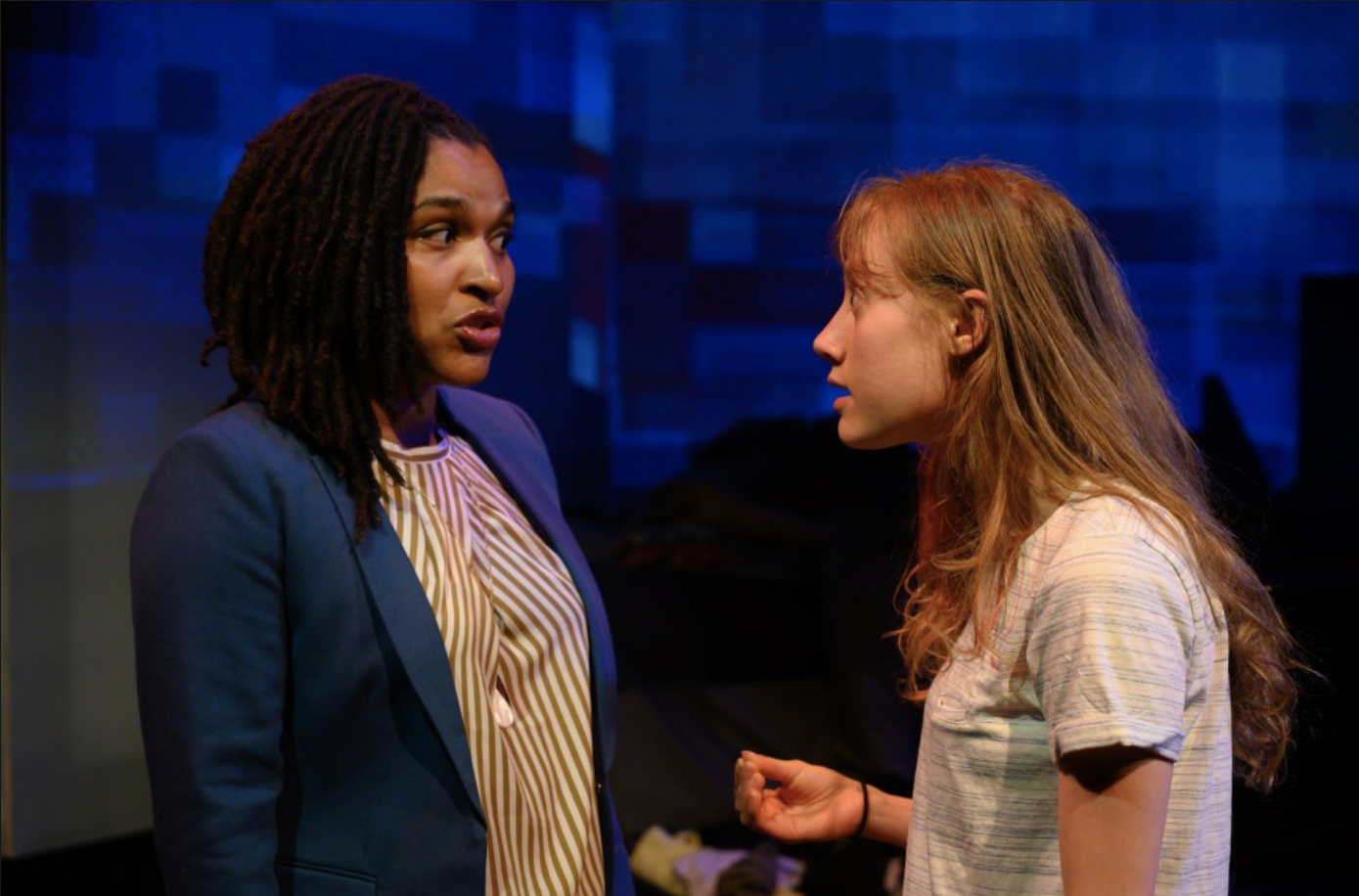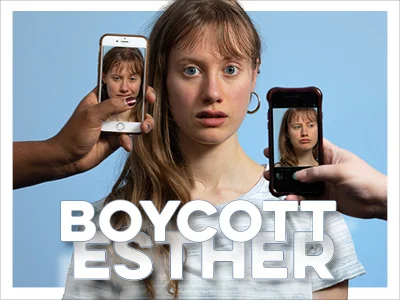Beyond BOYCOTT ESTHER
Welcome back, outcasts and underdogs!
I hope you all had a fantastic long weekend. It was certainly helpful for Azuka, to wind down after the bittersweet closing of Emily Acker’s BOYCOTT ESTHER.
For those of you who made it to the show — thank you so much. And a special thank you to those hundred-plus who made it through last Saturday night’s technical difficulties! This house manager thanks you for your patience, and is so glad we still got to share this story with you.
And so as we move on from ESTHER — a show which encourages discussion long after the lights go down — I want to share an excerpt from my interview with director Maura Krause.
You have also said that you hope ESTHER, rather than offering a solution, just gets people to have conversations. That’s something I’ve found a lot of people say in my research about #MeToo, that in order for there to be change, the conversations need to keep up their momentum, it needs to be ongoing. What are ways you see for people to facilitate that dialogue? How do we keep it going?
Well first and foremost I think this dialogue has to happen on an individual scale. While the large-scale movement of #MeToo was crucial, I think it was crucial in that it sparked a lot of individual reflection and small group conversation. To this end, I really believe men have to take care of their own. It is unacceptable to expect the survivors of sexual assault and harassment to do the work of teaching people how to be better. The first step is for men to privately interrogate their own assumptions and behavior, but without looking for some kind of praise or reward for doing that work. The second is for men to talk to each other and hold each other accountable for their actions. I also think that if non-men can approach this topic in a way that doesn't cost them too much, that is an important way to keep the dialogue moving. For example, I know my own capacity — there are a lot of men in my life whose processing of male privilege I've facilitated because I love them, but I don't have time to hold the hands of strangers in the early phases of confronting their patriarchal socialization.
Alison Ormsby and Steven Rishard in BOYCOTT ESTHER. Photo by Johanna Austin / AustinArt.org
And that’s just one way to look at it. As I discussed in my #MeToo blog series, there are also fundamental issues with the way #MeToo sparked those individual reflections:
Hopefully, [conversation] also leads to improvements in the movement; hopefully #MeToo extends to sex workers, to more people of color, to incarcerated women and victims of the police. Hopefully we examine not only the problem but the culture in which it exists — one of “boys will be boys” and “locker room talk.” And hopefully, no industry will steal the spotlight from any other — because this problem runs deep. There are victims everywhere.
Alexandra Espinoza and Alison Ormsby. Photo by Johanna Austin / AustinArt.Org
And that’s what this whole discussion boils down to. ESTHER also interrogates the complicated world of social media, of digital presences and virtual avatars and the intersections of identity, morality, and activism that come into play there. That conversation is its own brand of tricky to navigate, since technology is going to continue evolving rapidly, exponentially, no matter what we do. We have to be willing to keep up. In my interviews with them, both Maura and ESTHER star Alison Ormsby spoke to the ways in which, as the play makes clear, these two conversations intersect. Alison wrote:
I try to view social media as a tool to better connect to my immediate environment. There was definitely a time when I used its power to escape, but I feel it works its magic best when it helps connect me to where I really am! I’ve been able to find community events (political and non) through social media that I wouldn’t have known of otherwise. Also—It’s allowed me to follow complete strangers who I think have really valuable insight, which is a gift.
While Maura explained:
…maybe about 5-6 years ago, social media was really helpful in furthering my socially progressive education. I followed friends and writers and activists who posted things that helped me understand better my own privilege, and be exposed to the experiences of marginalized folx. For me, the two most positive aspects of social media are the opportunity to self-educate, and the power of voices in aggregate. I don't think I live my life much differently due to social media, but my world has been expanded by it.
All of our worlds have been — and I think, at the end of the day, we can each of us, individually, choose to make that a positive for ourselves. I know I’ve sought out Instagram and Facebook users leagues more politically and socially conscious than I am, in hopes of educating myself — and it’s been incredibly enlightening. But who knows what this landscape will look like 5, 10 years and beyond down the road? That’s what we need to be prepared for.
As you go forward, I hope that BOYCOTT ESTHER has added something to your own reflections and activism — a line, an image, an idea. I know it has for me.
Art starts the conversation, but it doesn’t finish it — nothing does, and nothing really should.
Keep stopping by. And THANK YOU!
- Lucas



